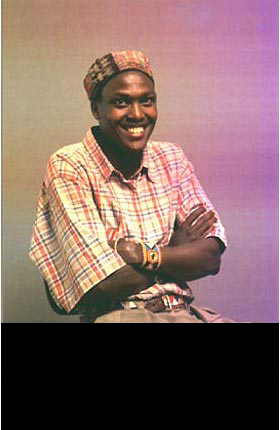 |
|
Kakuta Ole Maimai Hamisi
My name is Kakuta Ole Maimai Hamisi. I was born and raised in
the Maasai society, a culturally independent, pastoral tribe near
Mount Kilimanjaro in East Africa. During my early childhood, I
was trained to become a cow herder and a warrior. In 1989, after
I finished high school, my parents urged me to complete my traditional
Maasai education, and out of respect for my elders and our traditions,
I did so. I was initiated in the traditional way and became a
moran, a warrior. In the course of this initiation, I participated
in lion hunts and other traditional rituals and ceremonies. This
tribal system of education deepened my understanding both of myself
and my Maasai heritage.
At the end of 1995 I decided to further my education abroad.
After two years of study at the Evergreen State College, I volunteered
to work as an intern and assistant curator for the Seattle Art
Museum. I found many things that I didn't like about the collection
process that was conducted by scholars in the nineteen- seventies.
I did not see recognition of the artists, and I did not see presentations
explaining the meaning of the jewelry. I felt very distanced from
the ornaments that were exhibited. From that standpoint, I proposed
that the museum sponsor me to go back and compile a collection,
a legitimate collection that recognizes the people who made the
art. I returned to my homeland and asked members of my community
to assemble a collection. We decided to use the proceeds given
to me by the museum to build a local primary school, which is
known as the Merrueschi Primary School. This is what brought about
these collections.
Visit Kakuta's website at www.maasai-infoline.org
|
|

| |
 |
|
Kakuta Hamisi discusses beadmaking by Maasai
women
|
|
| |
| |
 |
|
This is more than a game. Kakuta Hamisi tells
why…
|
|
| |
| |
 |
|
Kakuta Hamisi describes how the shield is
used to throw a lion over one's head.
|
|
| |

|





